2e Learners
What is Twice-Exceptional (2e)?
Twice-exceptional (or 2e) Learners exhibit talent and/or natural ability in some areas while also being challenged in other areas with learning differences.
National Association for Gifted Children
Gifted and Talented.
Learning differences.
Specific Learning Disorders.
Learning Disabilities.
Exceptional.
Overwhelmed and labeled out yet? No need to fear the labels. Labels, while certainly not all-encompassing to our children as a whole, certainly have their place. When applied and used properly, they can be invaluable tools.
Living with Labels
It is not uncommon for an individual with Developmental Coordination Disorder to also experience at least one other thinking or learning difference. This concept is known as comorbidity.
Below are some of the conditions that can co-occur with DCD:
- Attention Deficit Hyperactivity Disorder (ADHD)
- Autism
- Emotional Regulation Issues
- Executive Dysfunction
- Sensory Processing Disorder
- Specific Learning Disorders: Dyscalculia, Dysgraphia, Dyslexia
- Speech and Language Disorders (Childhood Apraxia of Speech)
In both my professional and personal life, I have always held mixed feelings when it comes to labels. I dislike the idea of “categorizing” humans as though we were objects to be separated neatly into tiny boxes. On the other hand, for the sake of common ground in communication, some form of a descriptor is necessary.
Receiving a diagnosis (or even the absence of one) can help point you in the right direction for how best to proceed when seeking services for your child. Evaluations can help provide insight into your individual child’s needs, help provide proper supports to enhance learning, and guide the next steps of care.
To learn more about how we “Live With Labels” in our homeschool, visit our blog or YouTube channel.
How Do I Know if My Child is a 2e Learner?
While outward observation alone is not enough to determine a child’s learning strengths and limitations, there are a few common characteristics of gifted learners such as insatiable curiosity, strong memory, being a quick learner, profound interest in a specific topic, enjoyment of learning in general, and out-of-the-box thinking. Some common emotions and behaviors include often displaying emotional maturity, empathy, the ability to easily relate to adults, rapid speech, and high energy.
Among twice-exceptional students, traits include all of the above-mentioned characteristics as well as a tendency towards higher emotional and intellectual sensitivity in comparison to their chronological same-age peers. Furthermore, the key component is asynchronous development. In layman’s terms, this simply means these kiddos are “all over the map” regarding grade-level ability or age-appropriate development. An example may be a 3rd grader who conceptually understands high school-level math facts but struggles with fine motor skills such that his or her handwriting resembles that of a kindergartener.
In order to accurately determine your child’s individual strengths and limitations (and so you can adequately provide for your child’s educational needs), a comprehensive assessment is recommended.
Typically, the assessment process begins with the child’s pediatrician or family practitioner, as this is the health professional most often in contact with the child.
Prior to your appointment(s), make a list of your observations and concerns about your child.
- Take the list with you to the appointment(s). Oftentimes medical and professional offices can be intimidating places (especially to already worried parents).
- If you suspect a diagnosis of DCD, carry a handout on DCD with you to the appointment. Unfortunately, while commonly occurring, DCD is not a commonly recognized diagnosis. Having information in front of you can help facilitate a dialogue between you and your care provider. (Check out our Freebies Page for a printable handout or Infographic.)
- Ask for referrals to Occupational, Physical, and Speech Therapists to evaluate adaptive living, developmental, motor, and speech skills.
- For academic and ability testing, ask for referrals to a psychologist (i.e., Clinical, School, Educational, or Developmental Psychologists)
- Be sure to sign Releases of Information at all offices ensuring lines of communication among treating professionals remain open.
The Evaluation: What To Expect
According to the Austin Psychology & Assessment Center (APA Center), “A comprehensive psychological assessment can help to determine these students’ strengths and weaknesses and identify recommendations that help them capitalize on their strengths and overcome their challenges.”
The APA Center further explains that a twice-exceptional (2e) assessment typically involves “cognitive and academic measures as well as:
- Clinical interviews
- Standardized tests of visual and auditory attention
- A more in-depth look at achievement in areas of suspected difficulty (e.g., reading fluency in expected cases of hidden dyslexia)
- Standardized tests of memory and learning (when needed)
- Behavior checklists completed by parents, teachers, and student
- Psychological/projective measures as warranted”
Dr. Dan Peters, a psychologist, author, co-founder, and Executive Director of the Summit Center discusses what it means to be twice-exceptional, how to test for it, and how you can support your child in the below video.
For more information on obtaining an evaluation for DCD, please see the Living with Labels section of our website.
Educating the Twice-Exceptional (2e) Student
No two twice-exceptional learners are alike, each student has his or her own unique academic, emotional, social, physical, and behavioral needs.
Giftedness is asynchronous development in which advanced cognitive abilities and heightened intensity combine to create inner experiences and awareness that are qualitatively different from the norm. This asynchrony increases with higher intellectual capacity. The uniqueness of the gifted renders them particularly vulnerable and requires modifications in parenting, teaching, and counseling in order for them to develop optimally.
Asynchronous Development | National Association for Gifted Children (nagc.org)
Twice-exceptional or (2e) learners tend to struggle in traditional “brick-and-mortar” school settings. In conventional classroom environments, teachers face surmounting challenges such as large class sizes, limited resources, few support systems, and increasing demands on their time. Differentiated instruction in a classroom of twenty-five to thirty children is both unrealistic and unlikely. While many formal educational institutions have utilized special strategies such as acceleration, flexible ability grouping, and specialized pull-out programming, the reality is that 2(e) kiddos are often mislabeled, overlooked, or simply fall through the cracks.
Homeschooling Twice-Exceptional (2e) Learners
Parents are usually the first to identify a child’s giftedness. Gifted specialist, educational consultant, author, speaker, and homeschool mom of four gifted/twice-exceptional kids Colleen writes,
Homeschooling twice-exceptional kids is often the very best thing you can do for them, and you.
Twice-exceptional {or 2E} kids tend to struggle in a typical school environment. Their superior intellect helps them compensate for (and mask) their disabilities. Their disabilities tend to “tone down” their intellectual gifts. They come across as class clowns, disruptions, lazy, or average. It is really difficult for the typical school setting to work for them.
Homeschooling Twice Exceptional Kids (raisinglifelonglearners.com)
Properly educating 2(e) children requires first accurately recognizing and identifying each child’s particular strengths and limitations. Teaching twice-exceptional children can be both exciting and challenging.
For a few guidelines and tips that we in our homeschool, visit our blog or our YouTube channel.
Our Journey with Homeschooling and 2e
My husband and I lovingly and jokingly refer to our son as the “forever practice kid,” because as the only child in our home, we are always “figuring it out” with him. Little Man, we offer our humblest apologies as we walk hand in hand as a family on this journey without personal precedent.
As I reflect on various moments in our parenting, there are times where I felt I “nailed it” (rare), but mostly there are times where I cringe and am thankful we all emerged relatively unscathed (terribly sorry buddy about the diarrhea you experienced the first time I gave you apple juice. I was unaware you were supposed to dilute it with water. Mea culpa).
Wading through the memories, I am reminded of one particular diaper commercial. In the first half of the commercial, we see a new mom, flush with anxious excitement preparing for a “simple stroll” to the park with her new baby. She piles loads of “necessities” on top of the stroller her child is strapped into an overflowing diaper bag, toys, blankets, and “essentials” galore. By the time she finishes packing “all the things” that she thinks she will need in order to survive this epic trek to the park, she looks too exhausted to push her weighted-down stroller through the front door. Flash forward to the second half of the commercial and we see the mom again. This time she has a second infant strapped to her chest in an infant carrier as her older child toddles by. She is calm. She has been here before. She knows she has all she needs to enjoy this journey with her little ones. Her infant snuggled safely against her, she grabs a handful of birdseed in one hand and clutches the hand of her toddler with the other. Off they go.
Oh to have the serenity of THAT mom the second time around.
In families with more than one child, you may have the serenity described above. You have been here before. While each child is unique and the parenting experience with each child is personal, you lose a little bit of fear with each new addition to your family. Maybe this confidence comes with time. Experience certainly IS the BEST teacher. (Either that or you are insanely tired and figure the others have survived, so the odds are in this one’s favor, too. Whatever works, honey. No judgment here!)
Each journey, just like each child, is unique. There will be bumps along the road. Just keep putting one foot in front of the other.
For more on my background, our personal journey into homeschooling, our son’s individual learning needs, and our approaches check out the Welcome section of our website. For updates on 2(e) News, tips, and special interest articles relating to twice-exceptional students, be sure to check out our blog.
Recommended Reading
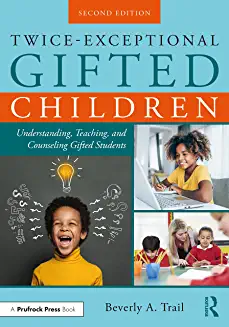
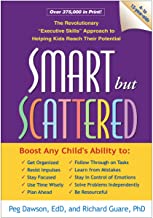
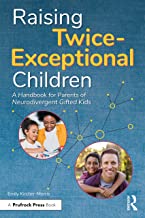
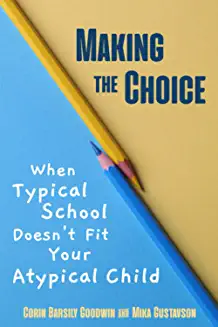
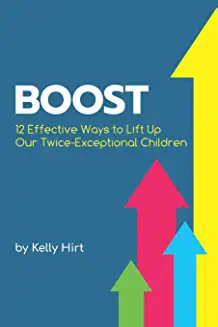
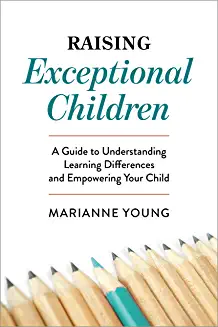
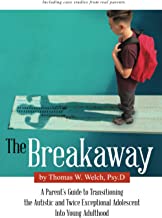
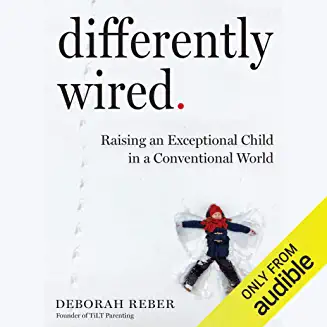
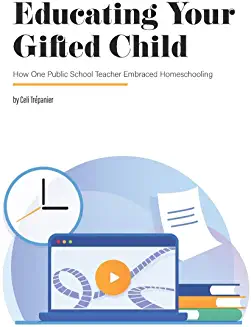
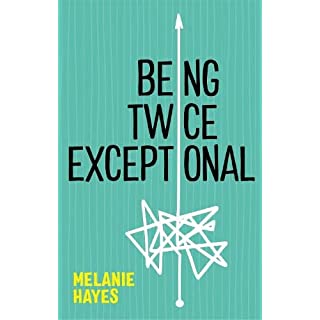
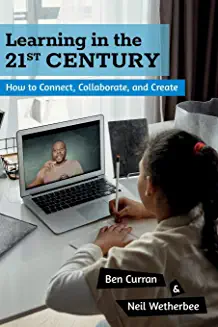
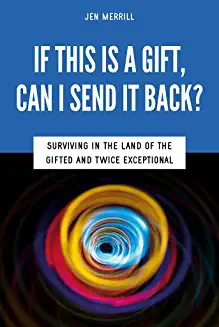
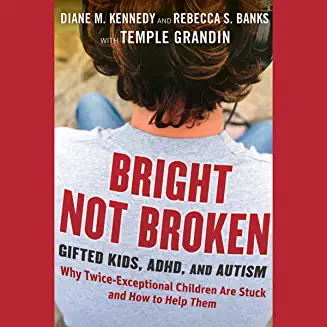
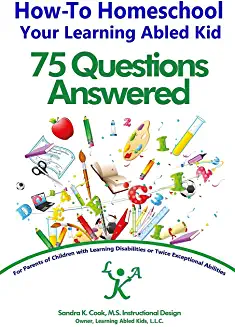
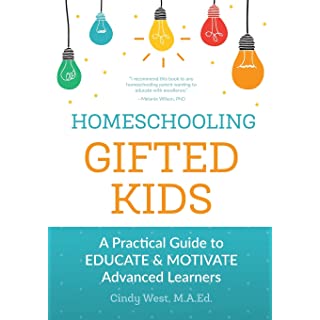
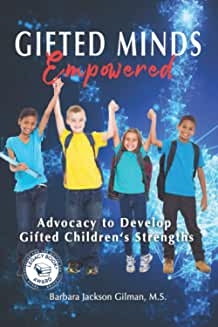
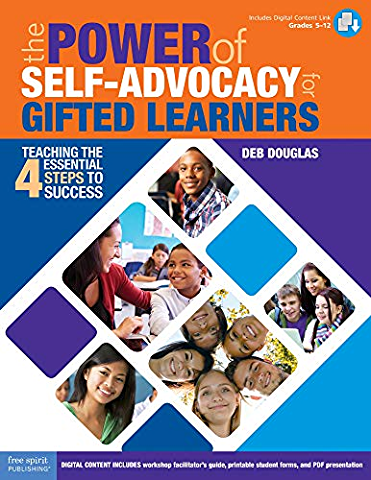

This website is not a professional counseling website and nothing here should be construed as professional counseling advice. Although Kimberly Bennett, LPC is a Licensed Professional Counselor, she is not your counselor, and no counselor-client relationship is established unless she has signed an agreement with you. All information provided through this website is for informational and educational purposes only. This post may contain affiliate links. Please read my disclosure statement. Thanks for visiting! This post may contain affiliate links. Please read my disclosure statement. Thanks for visiting!
